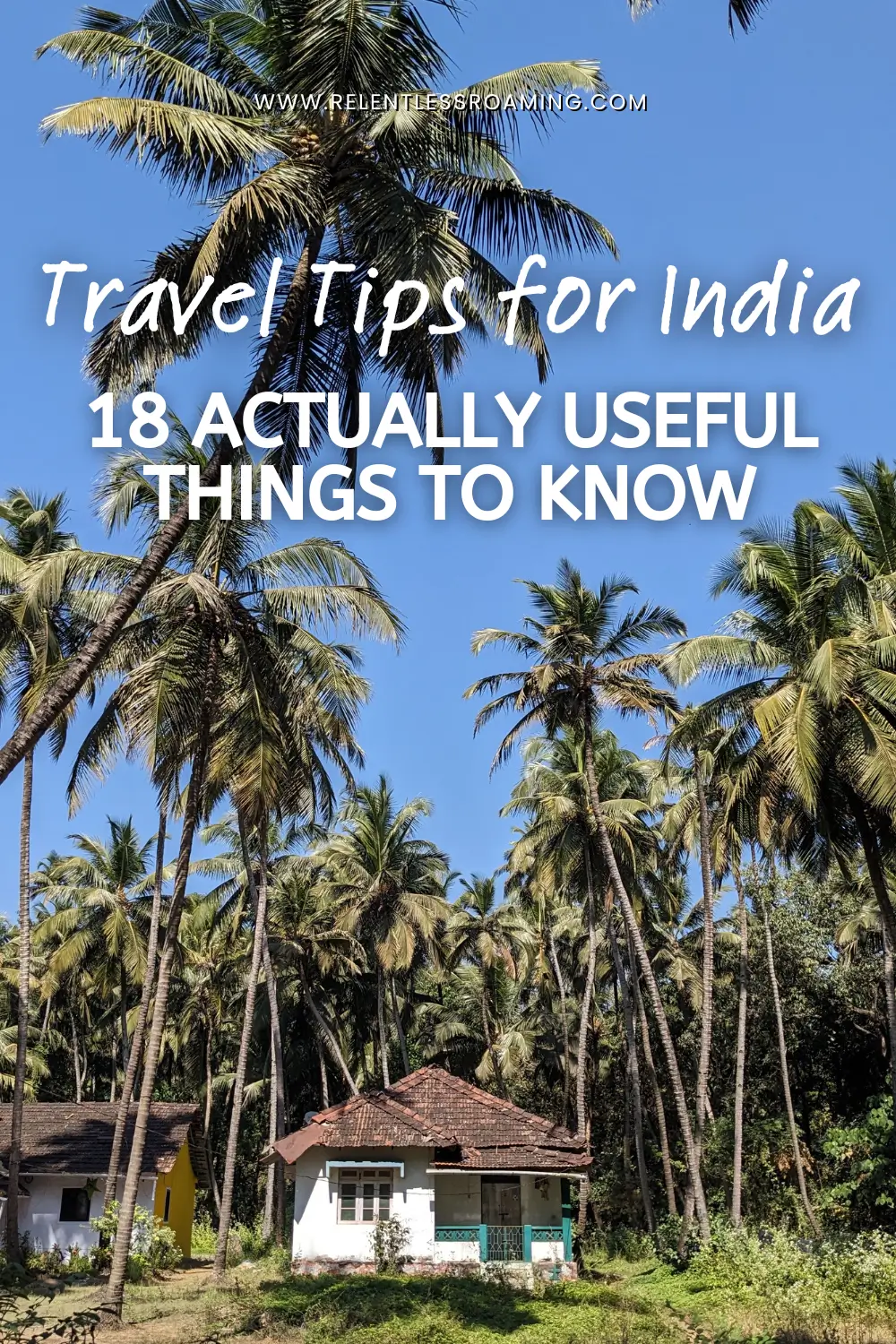Travel Tips for India: 18 Actually Useful Things to Know
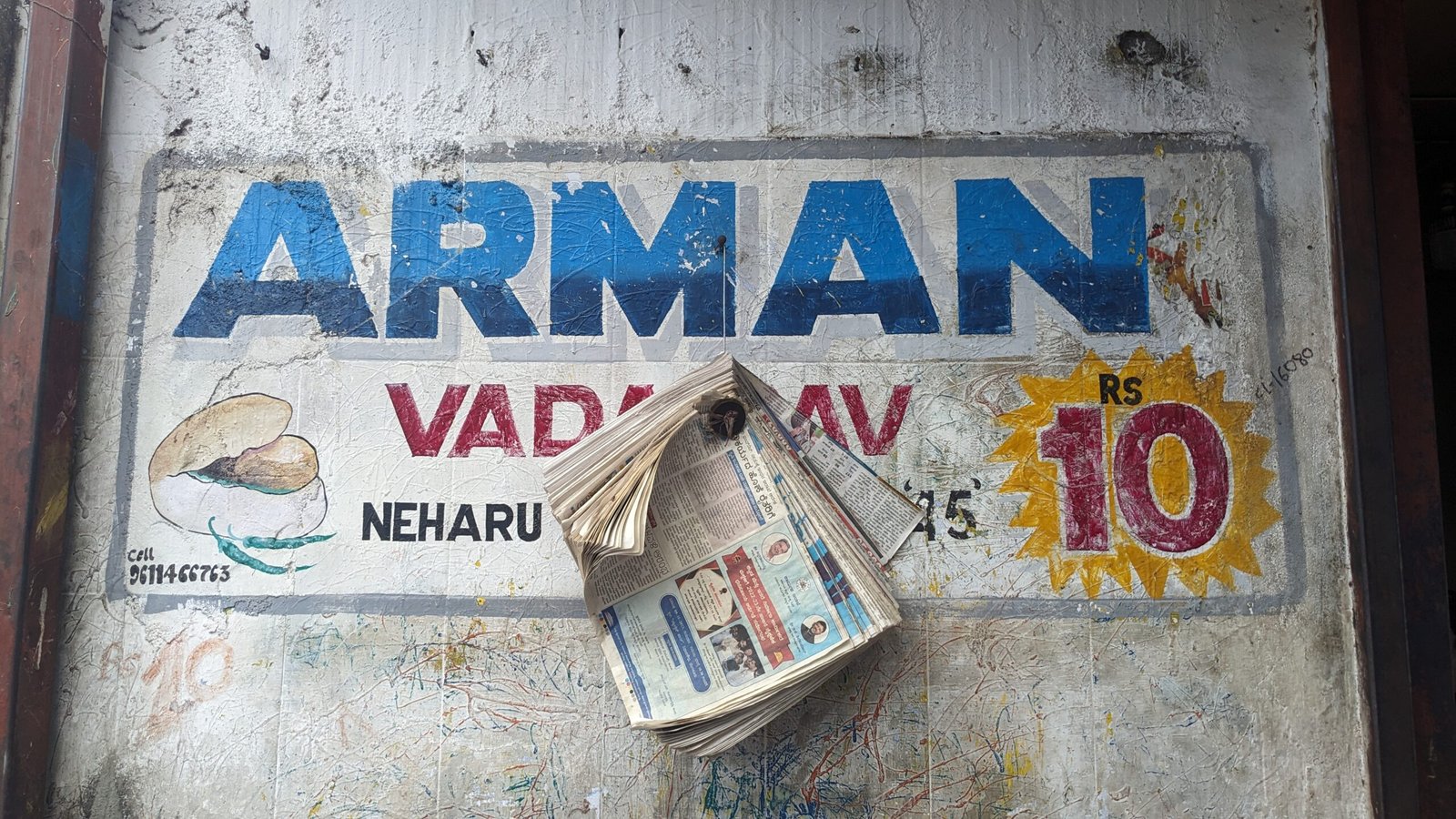

India is intense and chaotic, and vibrant and warm and full of culture, and we are absolutely in love with the place.
India is somewhere you will learn to well and truly go with the flow. Embrace the chaos; it’s the only way!
And if you do, you will find that this country and its people are beautiful and kind and welcoming. India is so disgustingly misrepresented on social media and in the regular media too. Yes, there are problems, but doesn’t every country have problems?
It is one of the most amazing places that we have visited and is somewhere that we will forever be returning to because we just can’t get enough.
And the food?!
Well, it’s the best in whole wide world in our opinion.
Tasting proper Indian food actually in India will make you realise how subpar Indian food outside of India actually is.
Lessen the culture shock and make the initial transition a little smoother and easier with these travel tips for India. After spending over three months independently exploring the country by public transport, these are our top things to know before you go. Find everything from what to wear, to best ATMs, to visas, to the best local drinks right here.
Disclaimer: This blog post may contain affiliate links, which means that if you click and purchase through a link, we may earn a small commission at no extra cost to you. And if you do choose to do this, THANK YOU so much for supporting us! It means that we can continue to create content for you guys. Full disclaimer here.
1. India is Chaotic
Brace yourself for chaos.
Beeping horns, tuktuks and motorbikes everywhere, crowds of people, dirty and dusty streets. And then you’ll realise that there are also spots in India where there really isn’t so much chaos – Goa, Alleppey, Madikeri, Coorg.
Yes, the chaotic side of India definitely does exist, particularly in the cities that you’ll fly into: your first experience of India will be overwhelming. But it’s all part of the Indian experience and you’ll get used to it and maybe even thrive in it! Embrace the chaos, don’t fight it!
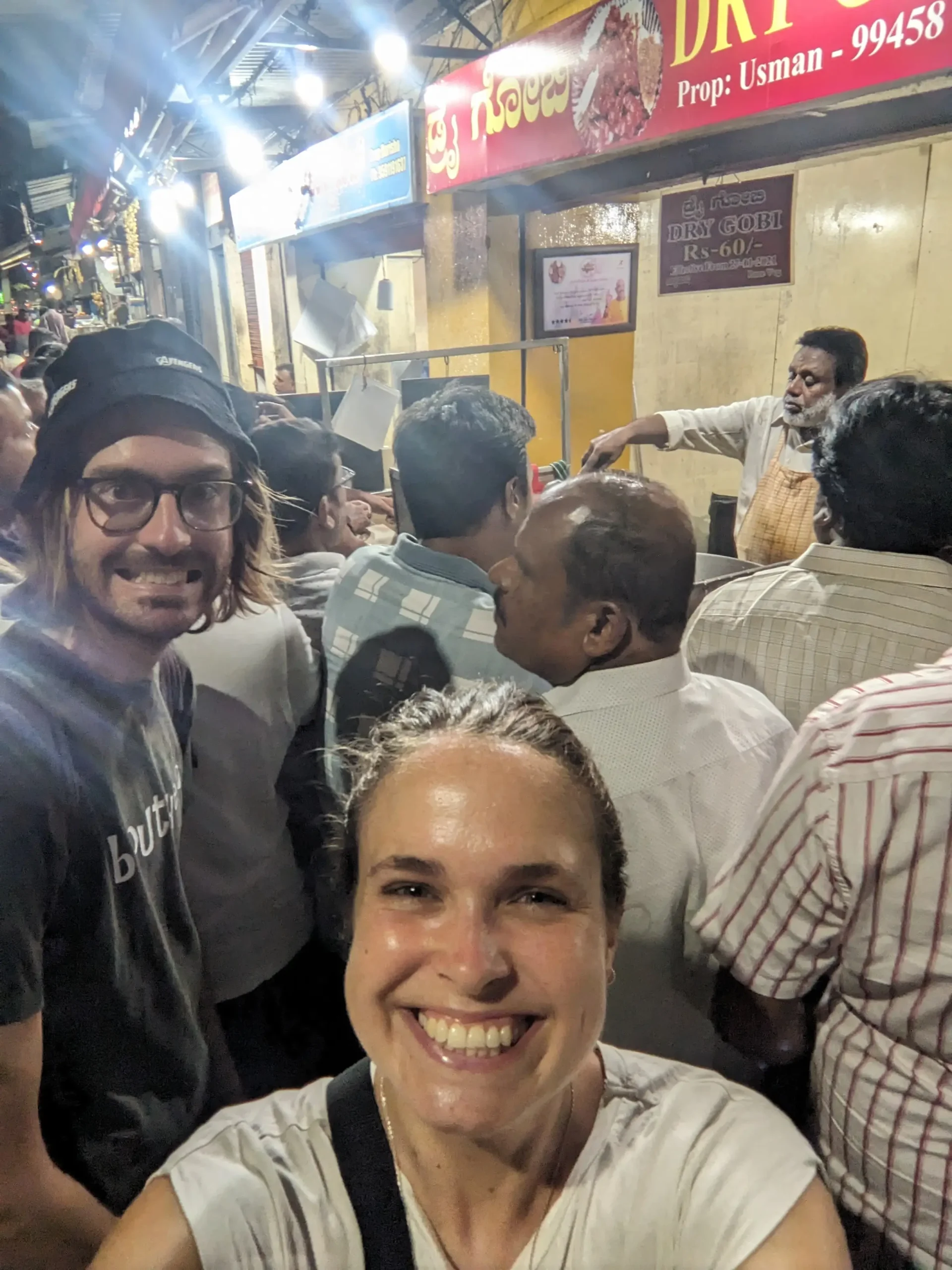

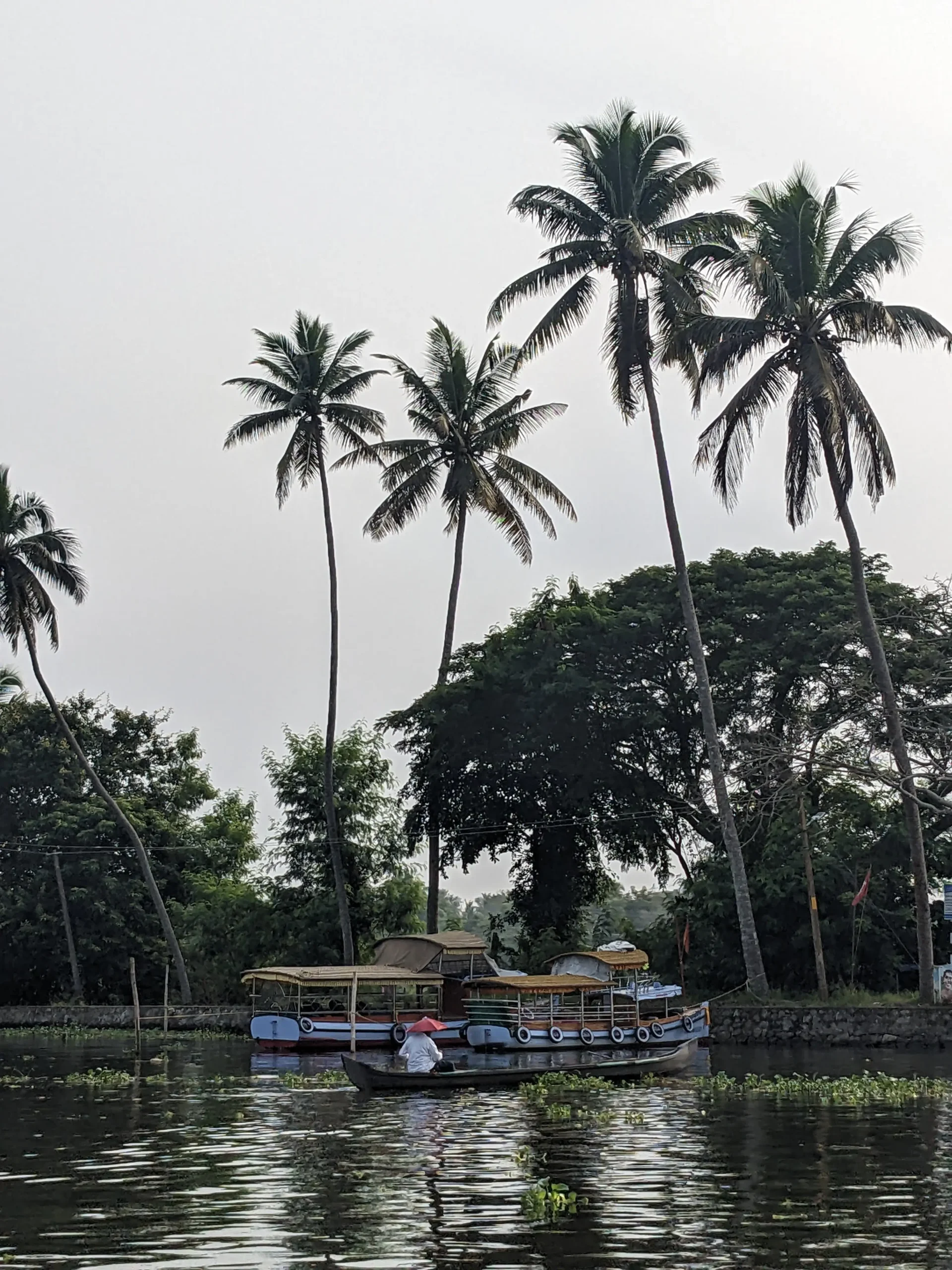

2. Transport Connects Almost Everywhere But It’s Not Always Comfortable
India is really well-connected with tons of internal flights, an extensive train network, plenty of buses, and of course taxis and tuktuks etc.
Trains
Booking trains used to be near on impossible unless you were an Indian citizen. Now though, you can book through 12Go which is an absolute gamechanger!
Trains sell out very quickly, so make sure you book your tickets in advance. We have taken a lot of trains around India and they are not generally comfortable journeys.
Double-check for aircon, seating arrangements, ticket class (because not all trains are made equally – trust me!).
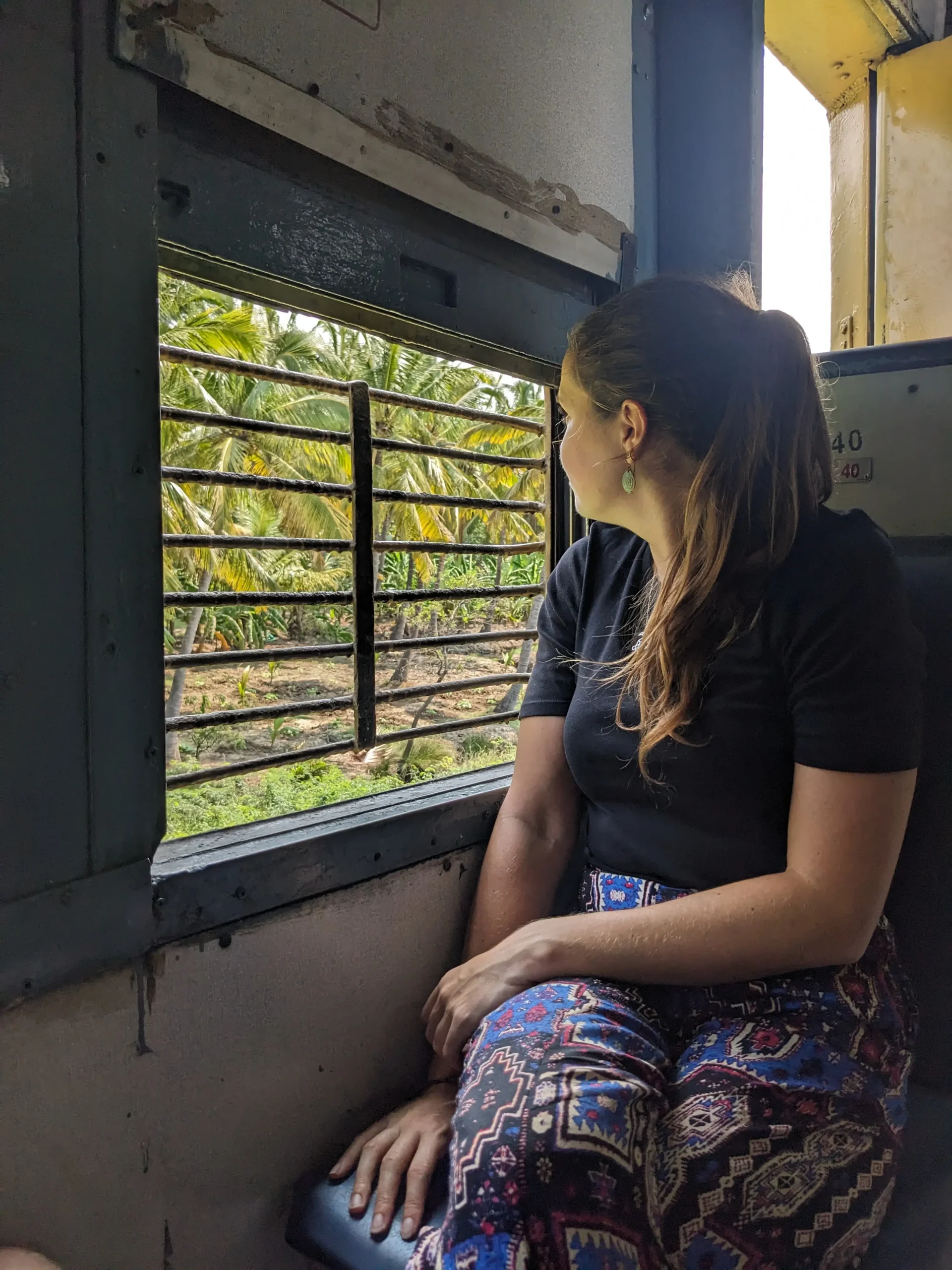

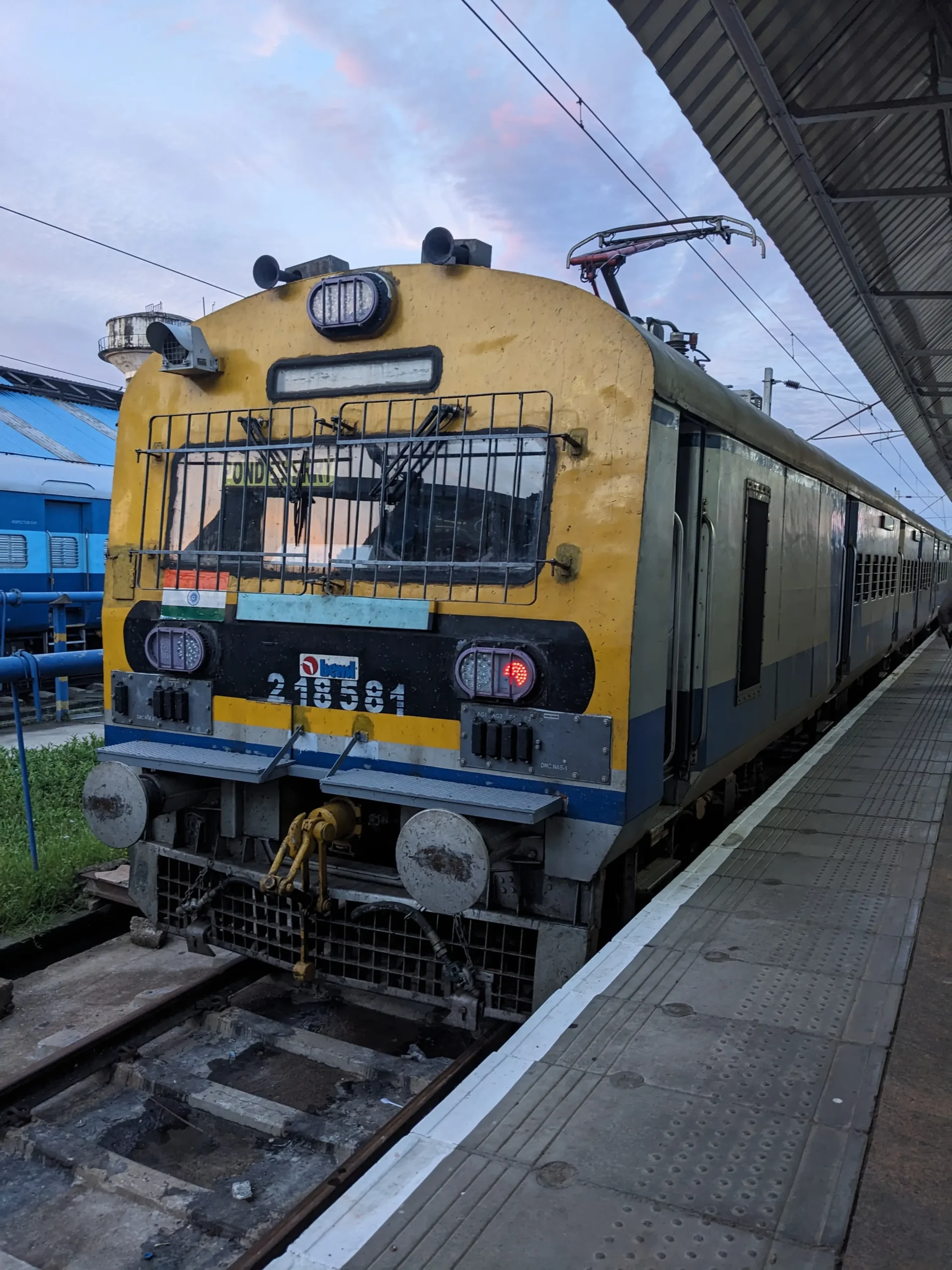

Buses
Bus travel is dead easy and affordable, but because of the insane traffic in India, a huge amount of buses only run overnight when the traffic is less severe.
This means that departure and drop-off times are often awful. No one wants to be arriving into a new city at 3am, but sometimes that’s the only option!
Having said that, every single night bus we took in South India had fully reclined beds with privacy curtains. And they were relatively clean and comfortable ish.
There are far more buses than trains so this was our preferred method of transport. And again, you can book on trusty 12Go! Lifesaver.
There are also local buses that just pop around within the city, but depending on the regular city traffic, you might be better off walking!
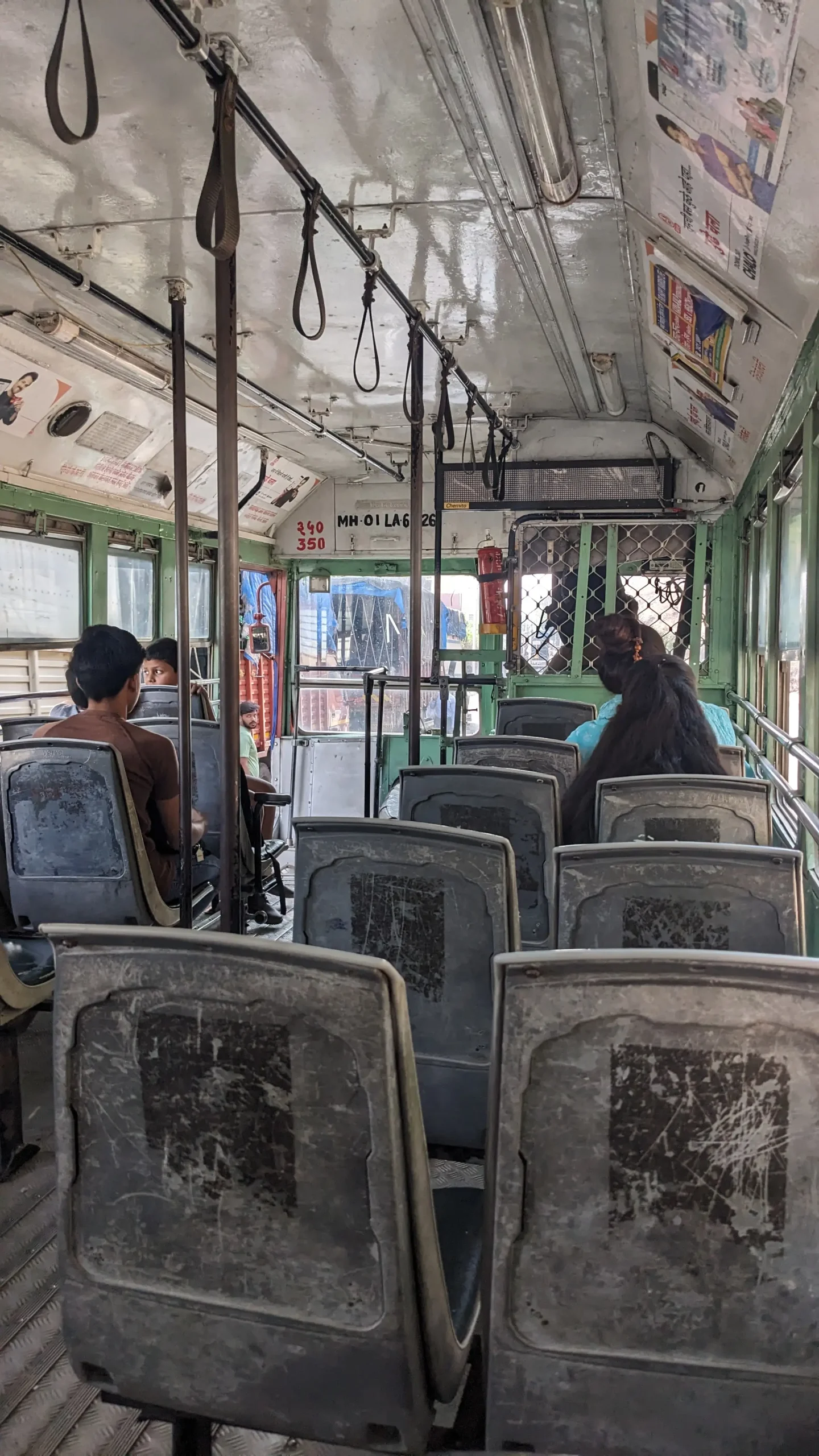

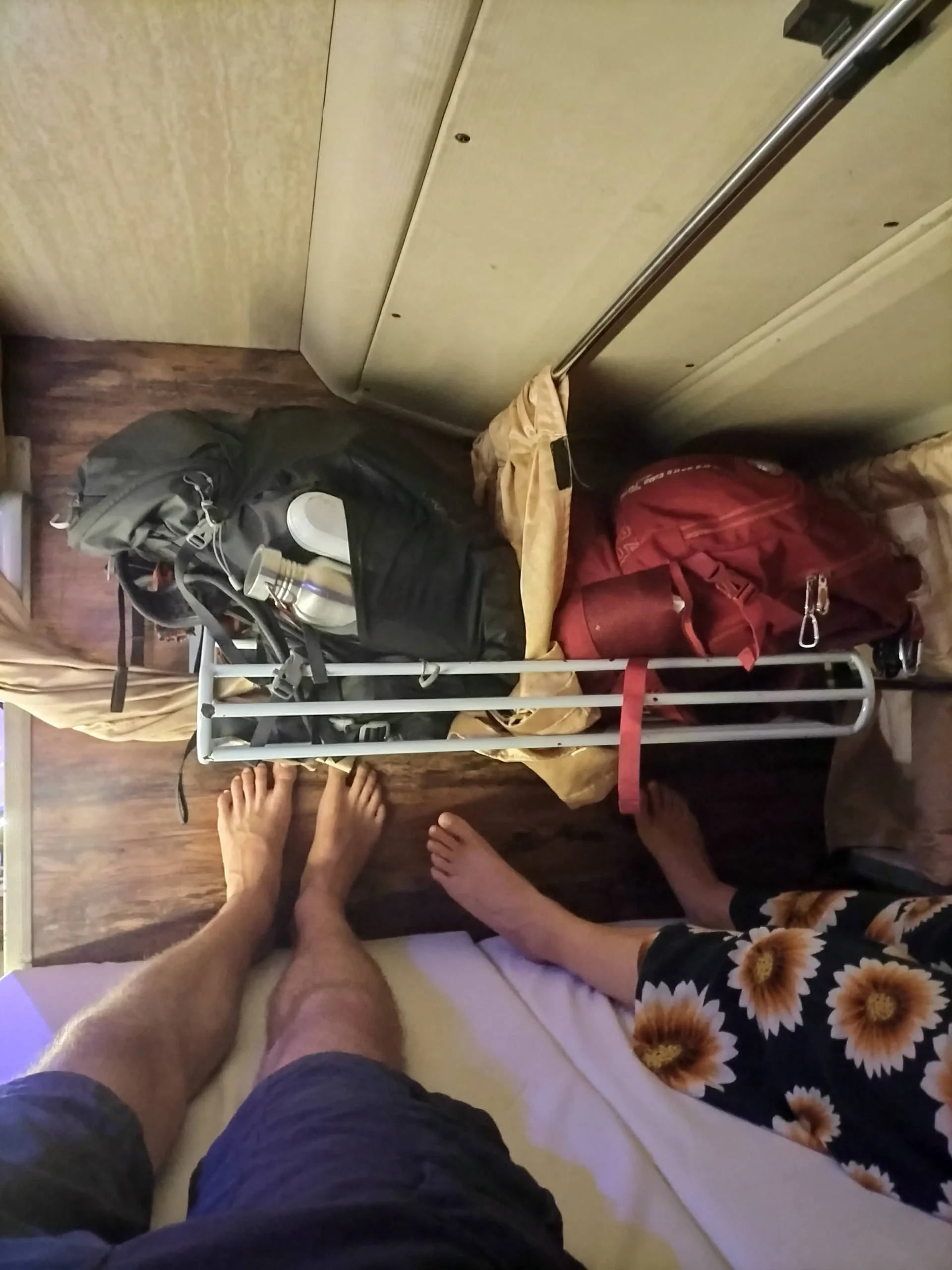

Domestic Flights
If long distance buses and trains don’t float your boat, you can take internal flights. There are several budget Indian airlines that can get you around the country quickly and affordably. Take a look at Trip.com
3. You’ll Likely Need a Visa
Almost all nationalities need a visa to enter India. Make sure you start looking into this well before your flight because you need to provide a lot of info, passport style photos etc. and then wait for approval. There are many different types of visa for India so make sure you get the right one. And there are lots of different durations of visa: from 30 days up to five years!
We found the whole visa process for India a little overwhelming and we also didn’t leave much time to get the visa sorted, so we actually used a visa agent. It’s not our usual way of doing things, but I cannot rate iVisa highly enough.
We sent them all the info and photos, and they dealt with everything really quickly. Yes, you have to pay more than if you did it all yourself, but if you’re tight for time and just don’t want the hassle, this is a great option. FYI – even though we got an evisa, we still had to print out a physical copy of it to be allowed entry. Chris nearly wasn’t allowed entry, but that’s a story who a different day!
4. The Top Taxi Apps
Uber is the most commonly used taxi app around India, but it’s not always easy to use. If you are using Uber for something important like getting to the airport on time, I would recommend booking your trip in advance through the app because it is not always reliable.
Some Indian states just do not use Uber, like Goa for example. And some states have other companies that are also used such as Ola, Rapido, InDrive. There are many different taxi apps in India so I’d recommend installing a selection of apps instead of just relying on Uber.
You can even request tuktuks on Uber!
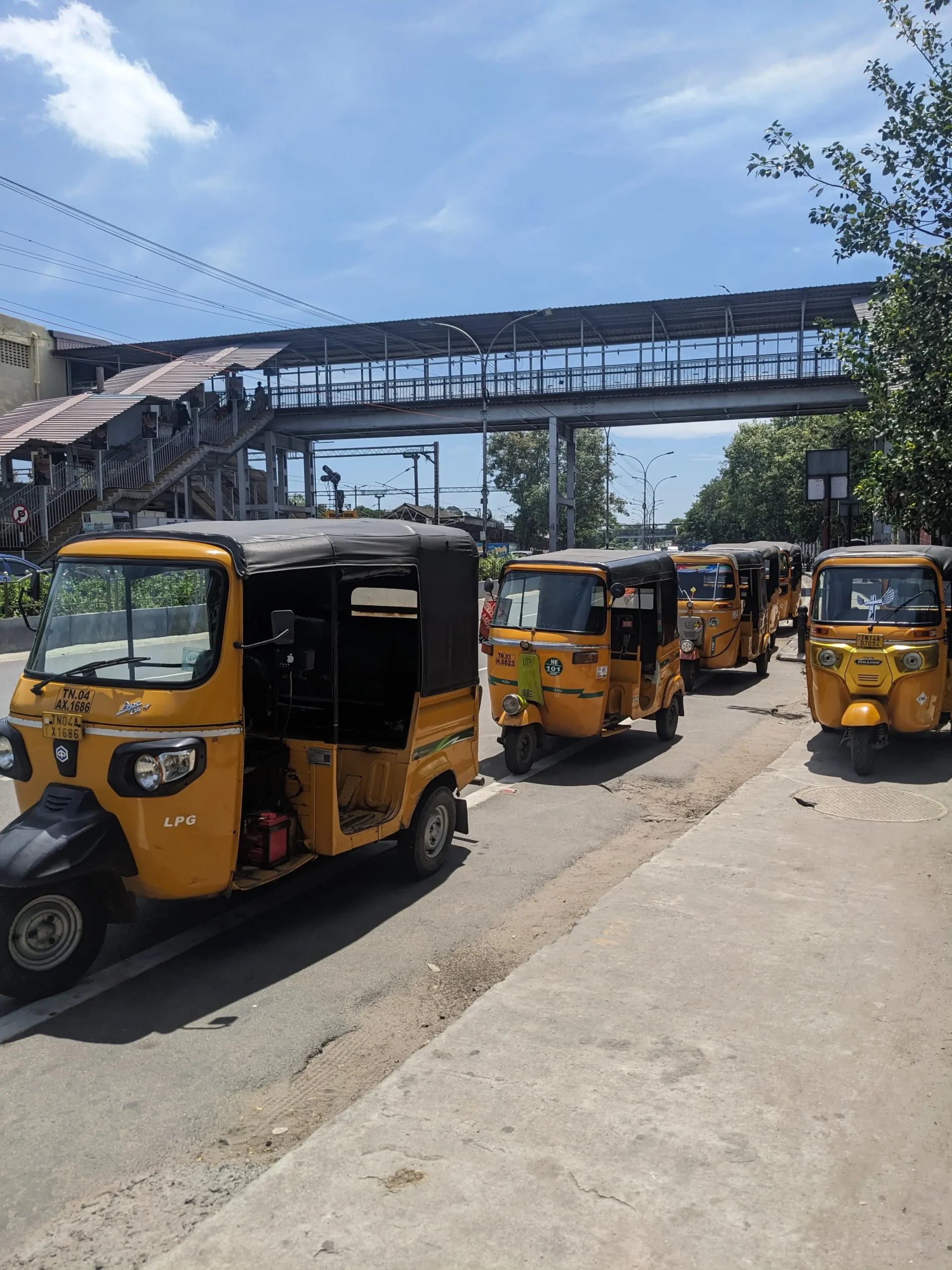

5. Food Delivery Apps
Our favourites are Swiggy and Zomato, and we managed to use these in most cities in South India. They’re both easy to use.
6. Cash or Card?
Well, India actually has a UPI cashless system so you’ll see QR codes everywhere. But, while locals can use these, we never managed to get it sorted ourselves – I guess you have to have an Indian bank account.
As a tourist, you’ll definitely need to have cash on you as most places accept this UPI method of payment instead of card payment. So, the other alternative is obviously cash.
Larger establishments like hotels, supermarkets etc. will accept card payment too.
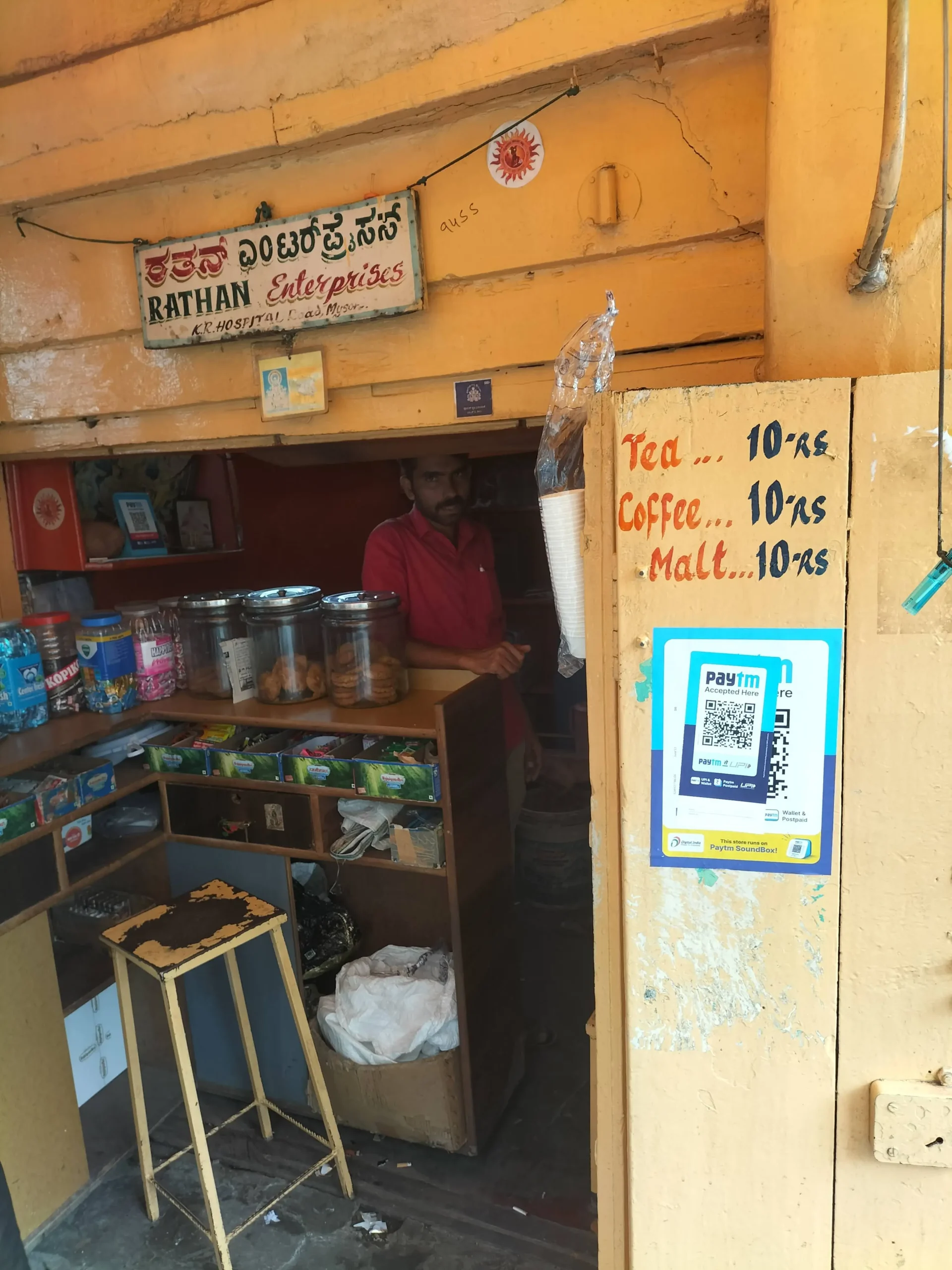

7. Local Currency
The local Indian currency is the rupee (INR) which has the currency symbol ₹. The Indian rupee is a closed currency which means that it will be difficult to get hold of outside of the country and difficult to exchange if you leave the country with rupees.
8. Fee-Free ATMs
We only found one bank that has free ATM withdrawals for foreign cards, but I believe there are a few more. Bank of Baroda is the magic ATM!
9. India is a Vegetarian Paradise
And I don’t say this lightly. The world’s best food. Full of veg and beans and lentils and spices and garlic and coconut and chilli and honestly, I could chat to you forever just about Indian food.
You will not struggle to find delicious vegetarian options in India. And it’s made even easier for you because many restaurants call themselves ‘veg restaurant’ or ‘non-veg restaurant’. So you know that you can order anything in a veg restaurant and there will be no sneaky meaty elements.
THE ULTIMATE! Order anything and everything.
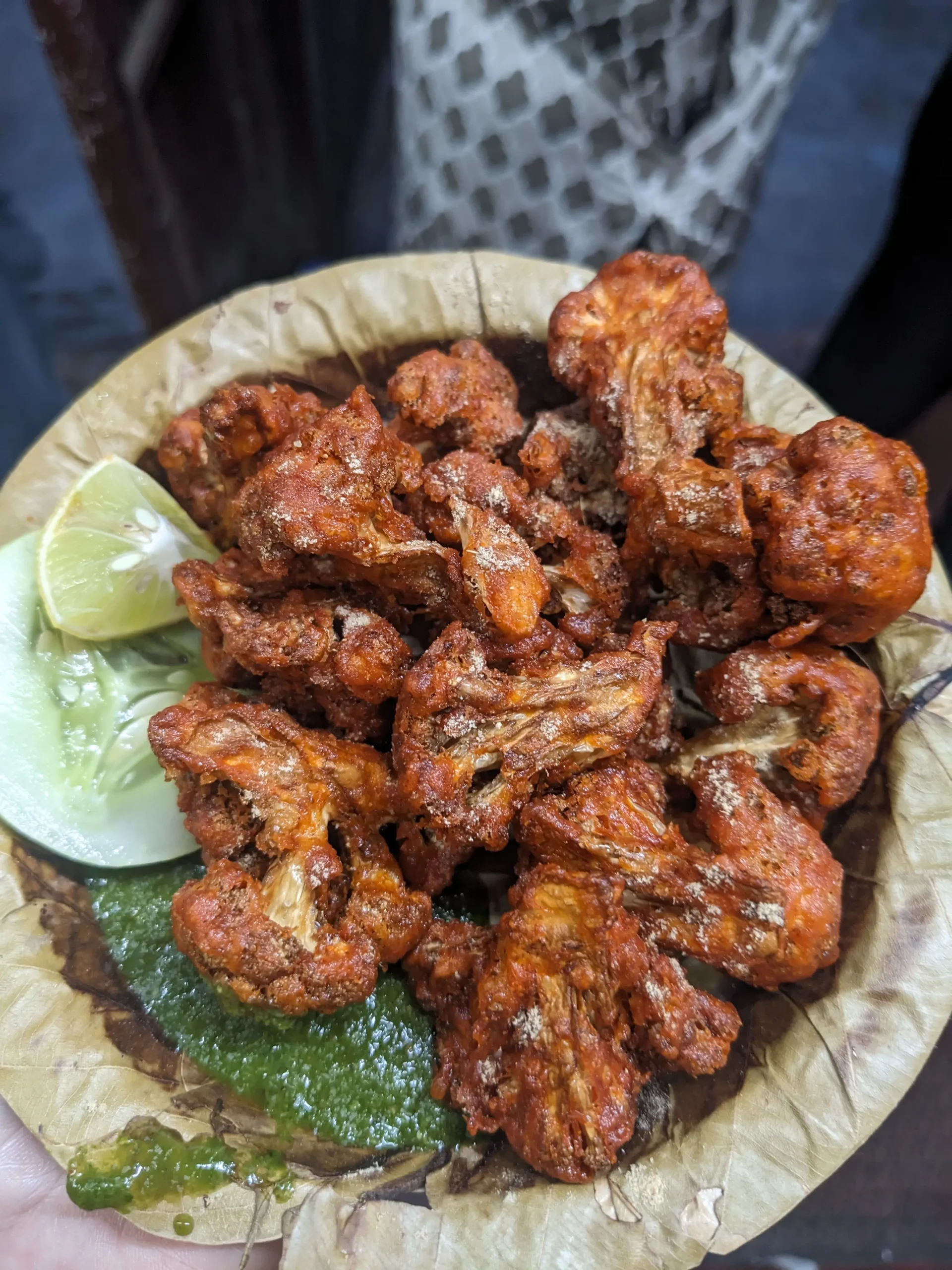

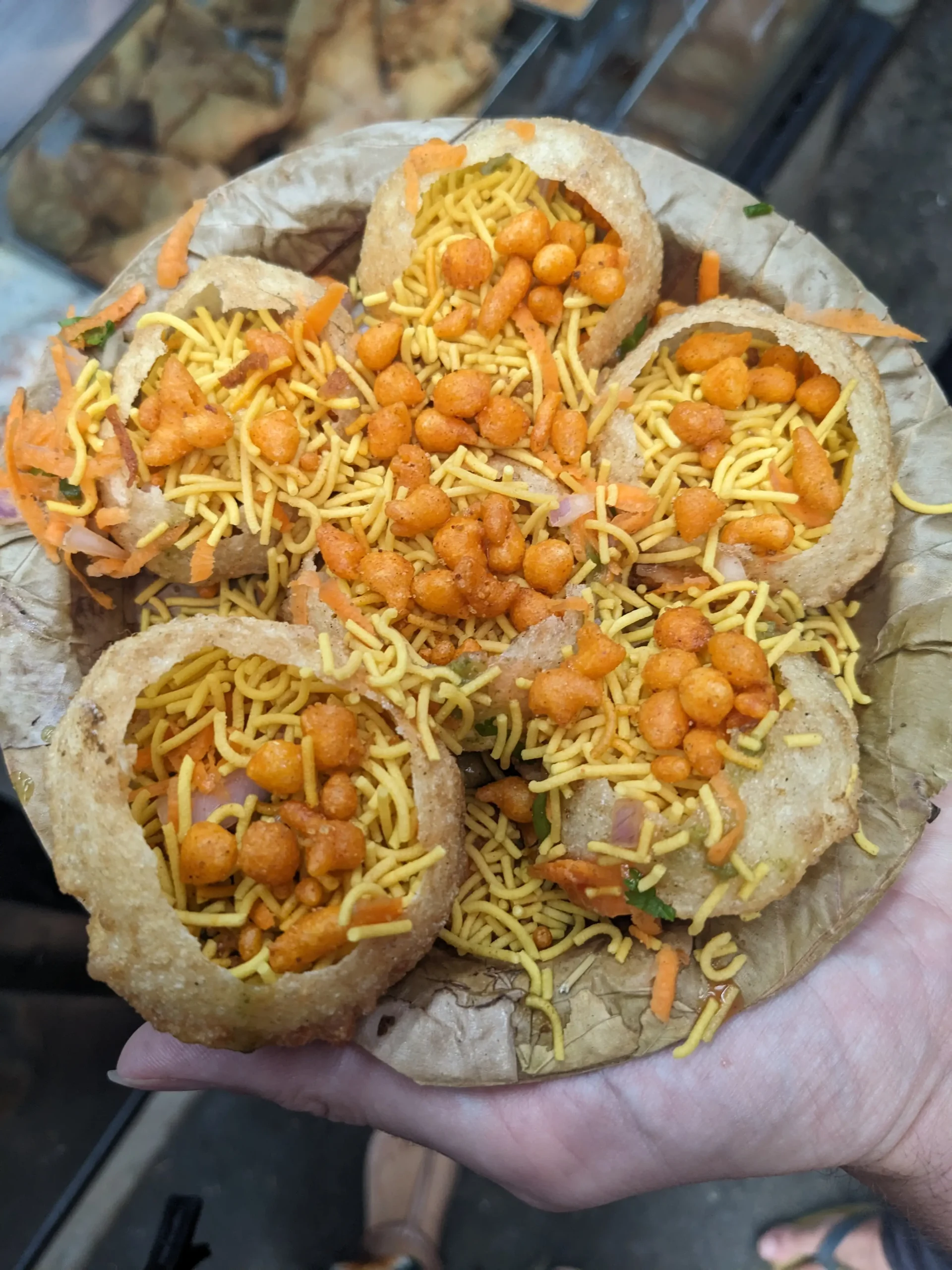

Each region in India has a different cuisine which means that this section here is really difficult to fill out. Across South India however, these were the dishes that we were always able to find everywhere.
Food to Try
Masala dosa is a thing of beauty that became an absolute obsession. Fermented rice and lentils are ground into a paste to create a pancake style batter. It is fried until a little crisp, but still a little spongey, and then smothered in a masala paste and a spiced potato mix. It’s served with coconut and green chilli chutney. Perfection.
Try palak paneer (spinach paneer curry), cafreal (a super green and herby Goan spice paste), baingan bharta (spicy aubergine), Keralan paratha (crisp, flaky, chewy bread), vada pav (a Maharashtrian spiced potato ball deep-fried and served in a bun with mint chutney). This list could go on and on and on and on.
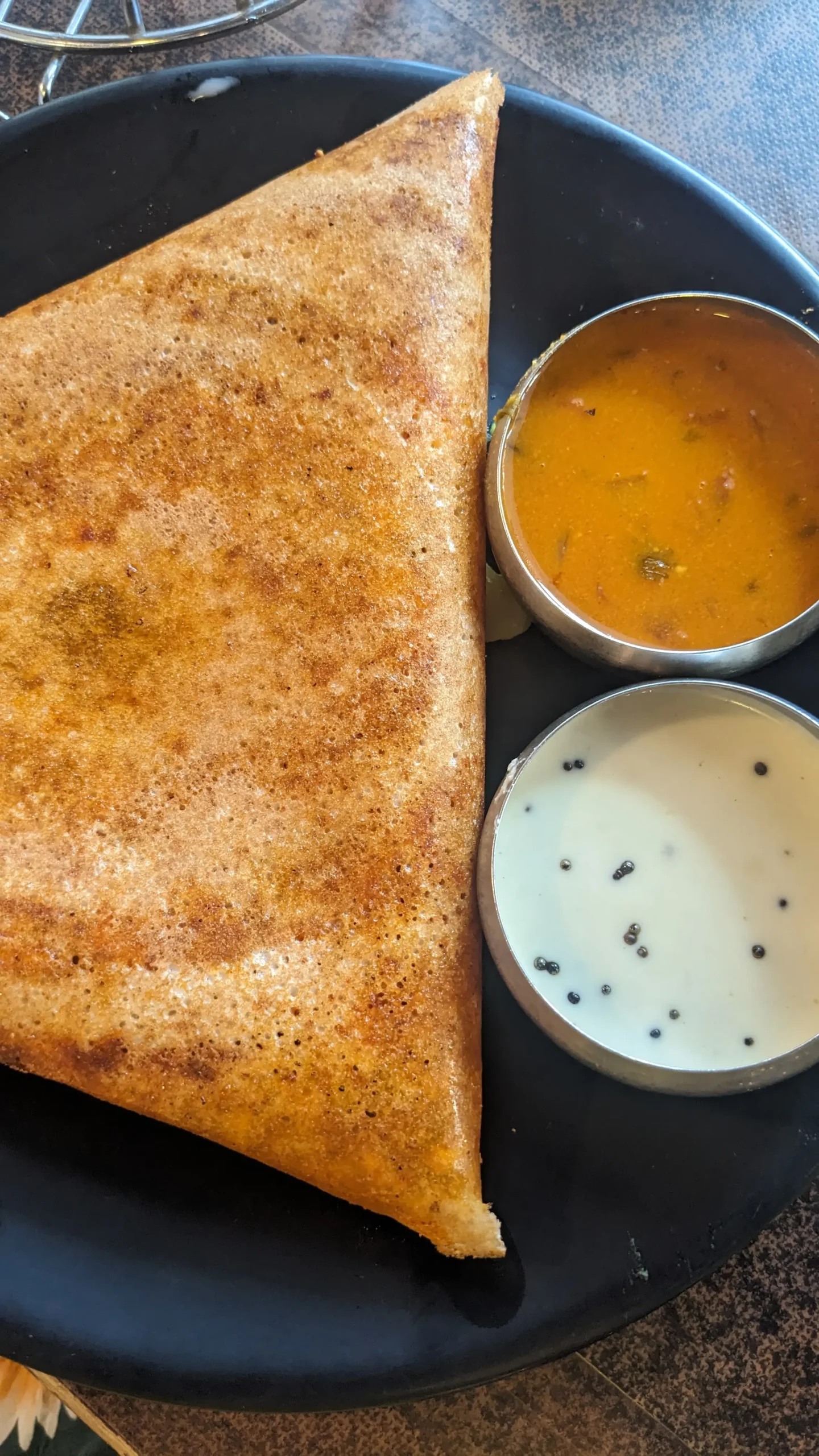

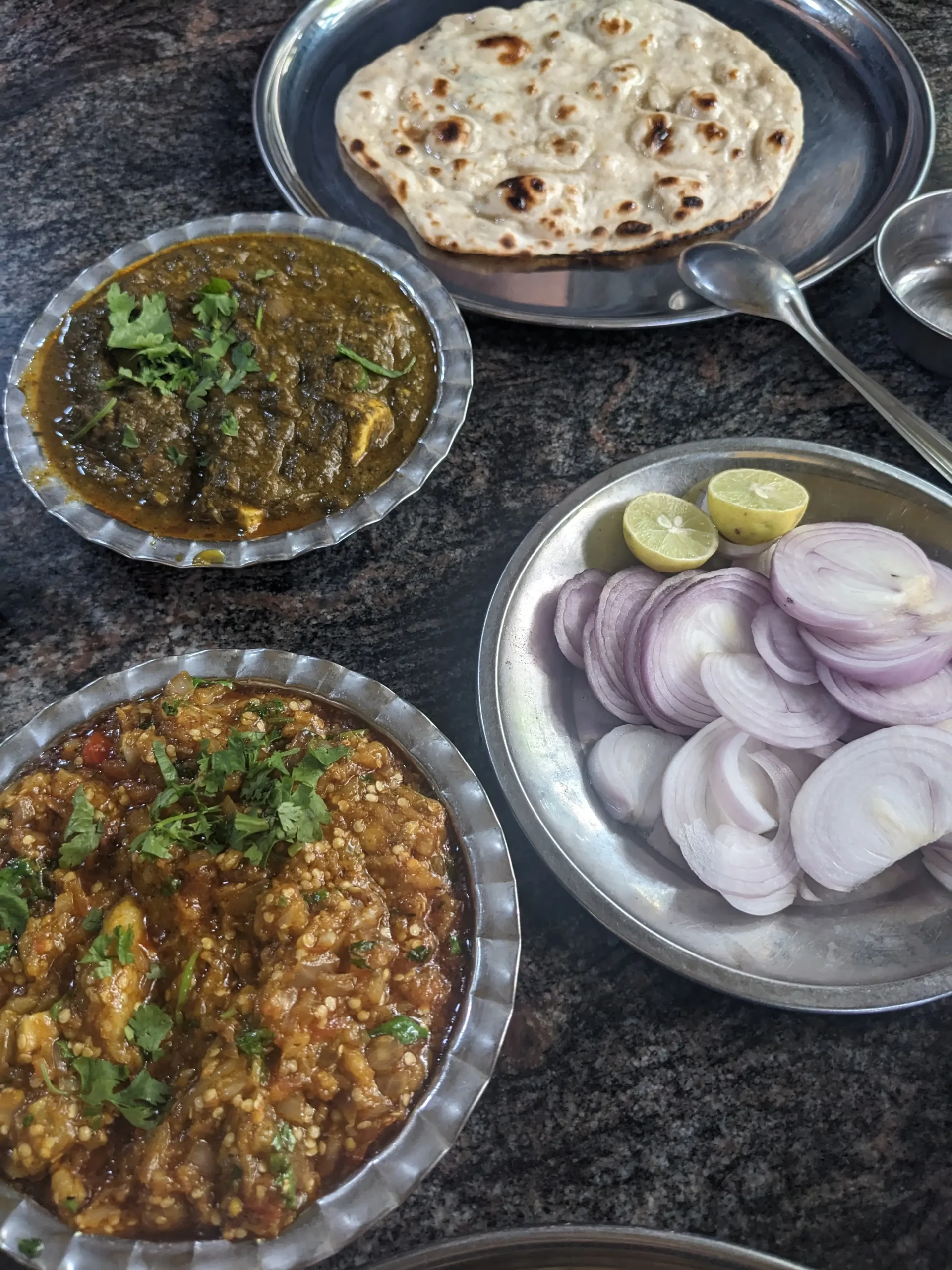

Drinks to Try
South Indian filter coffee, masala chai, sugarcane juice, lassi, coconut shake, Old Monk rum, Old Oak whisky, Thums Up (yep, it is spelt without the ‘b’), Goan coconut feni alcohol. Seriously, the post I write on Indian food and drink is going to be endless.
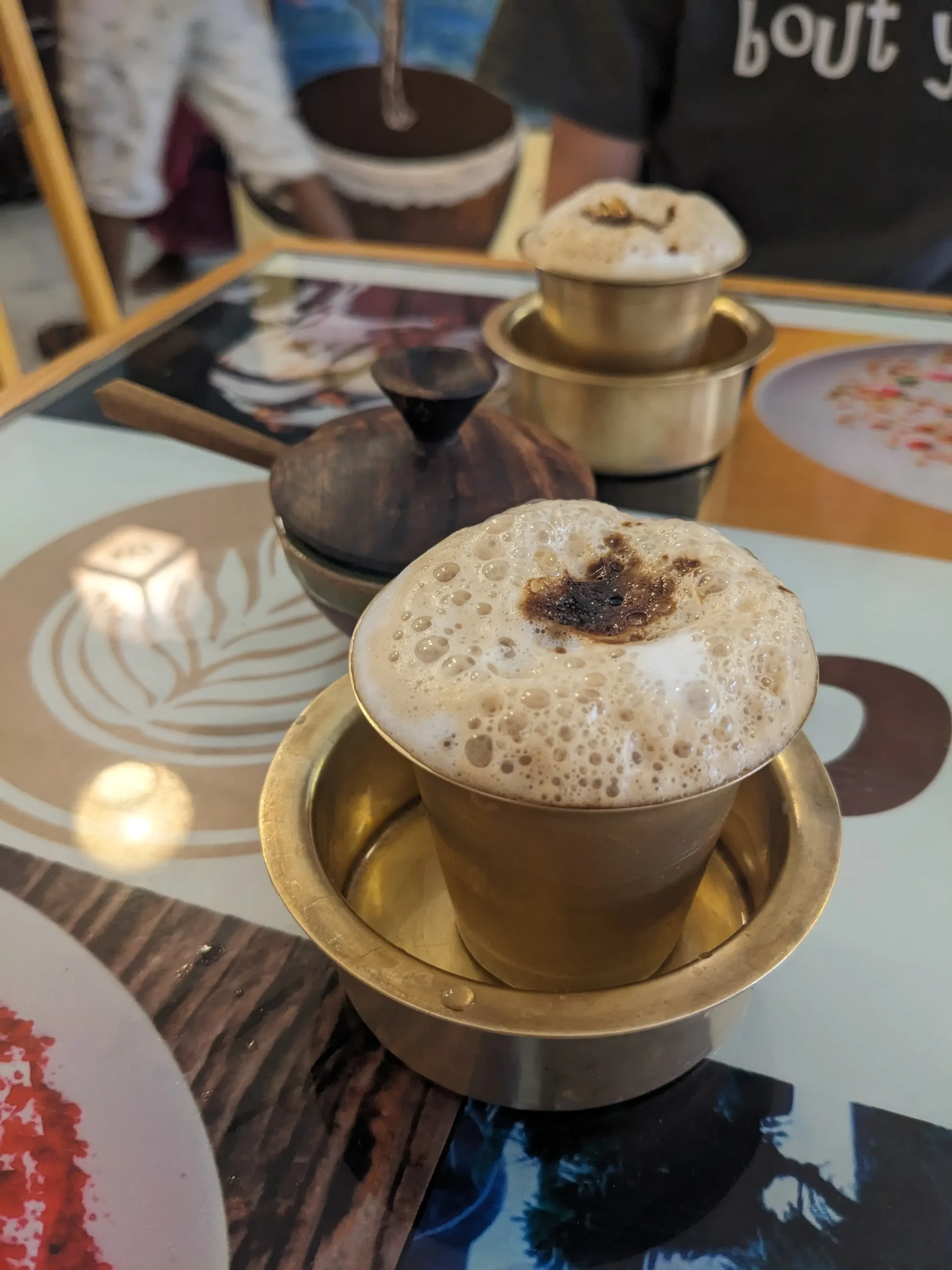

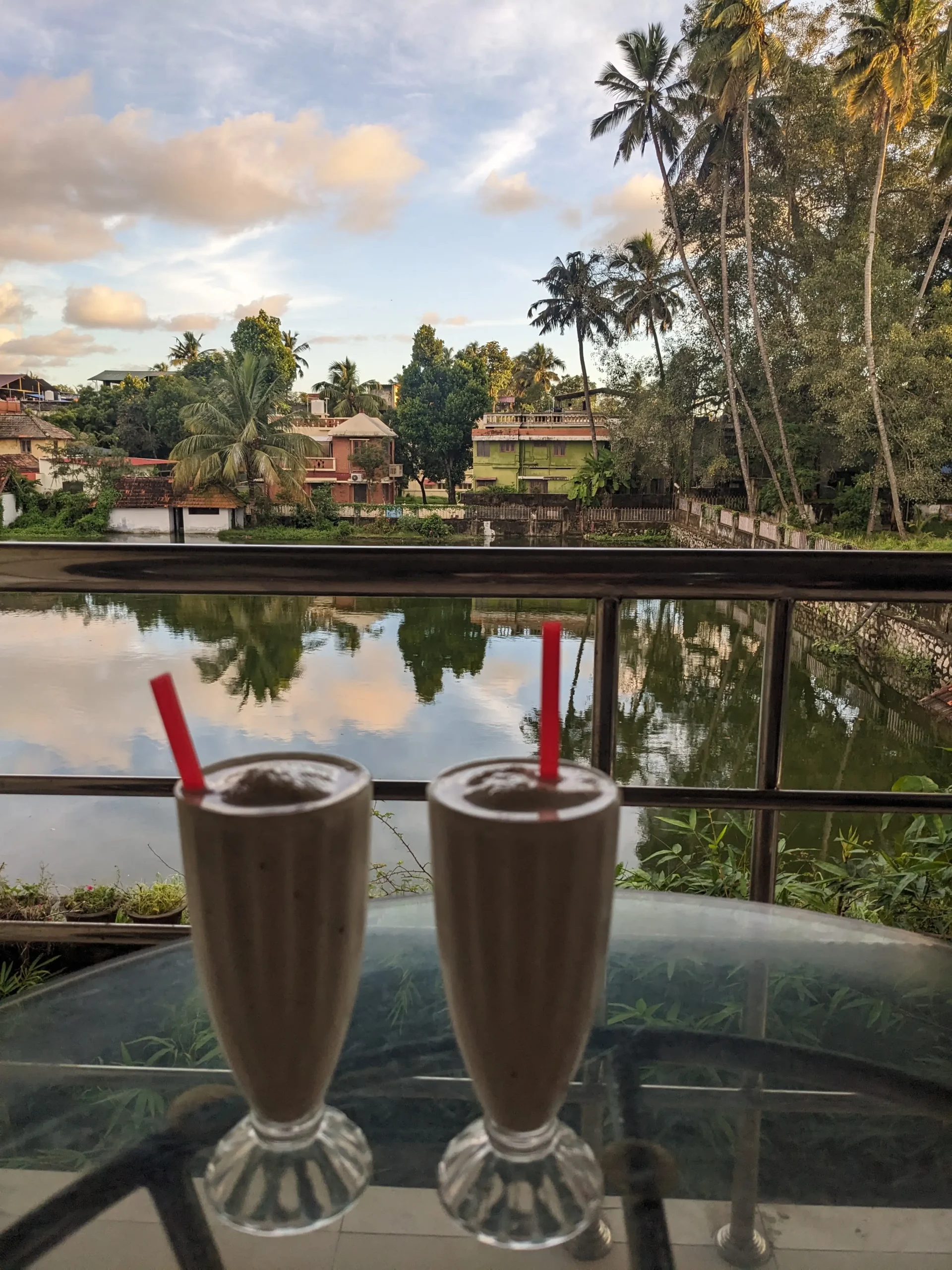

10. Delhi Belly is a Concern but…
We travelled around South India for three months eating EVERYTHING we could get our hands on, and we did not get sick. Now, I’m not saying it’s not a thing; it is.
Just be careful with how you eat and what you eat and where you eat. But don’t let the fear of getting ill stop you from trying the food because, like I keep saying, it is the world’s tastiest.
11. If You Like Your Food Spicy, Tell Them
If you don’t look like a local, chances are that the restaurant will reduce the spice level dramatically. When ordering food, specify that you want your food ‘Indian spicy’, because there is a big and disappointing difference between Indian spicy and European spicy.
If you’re not good with spice, well, good luck.
No, I’m kidding!
Not everything is super spicy. And some of the food we had just was not spicy whatsoever.
And in all honesty, we have had MUCH spicier in Java, Indonesia.
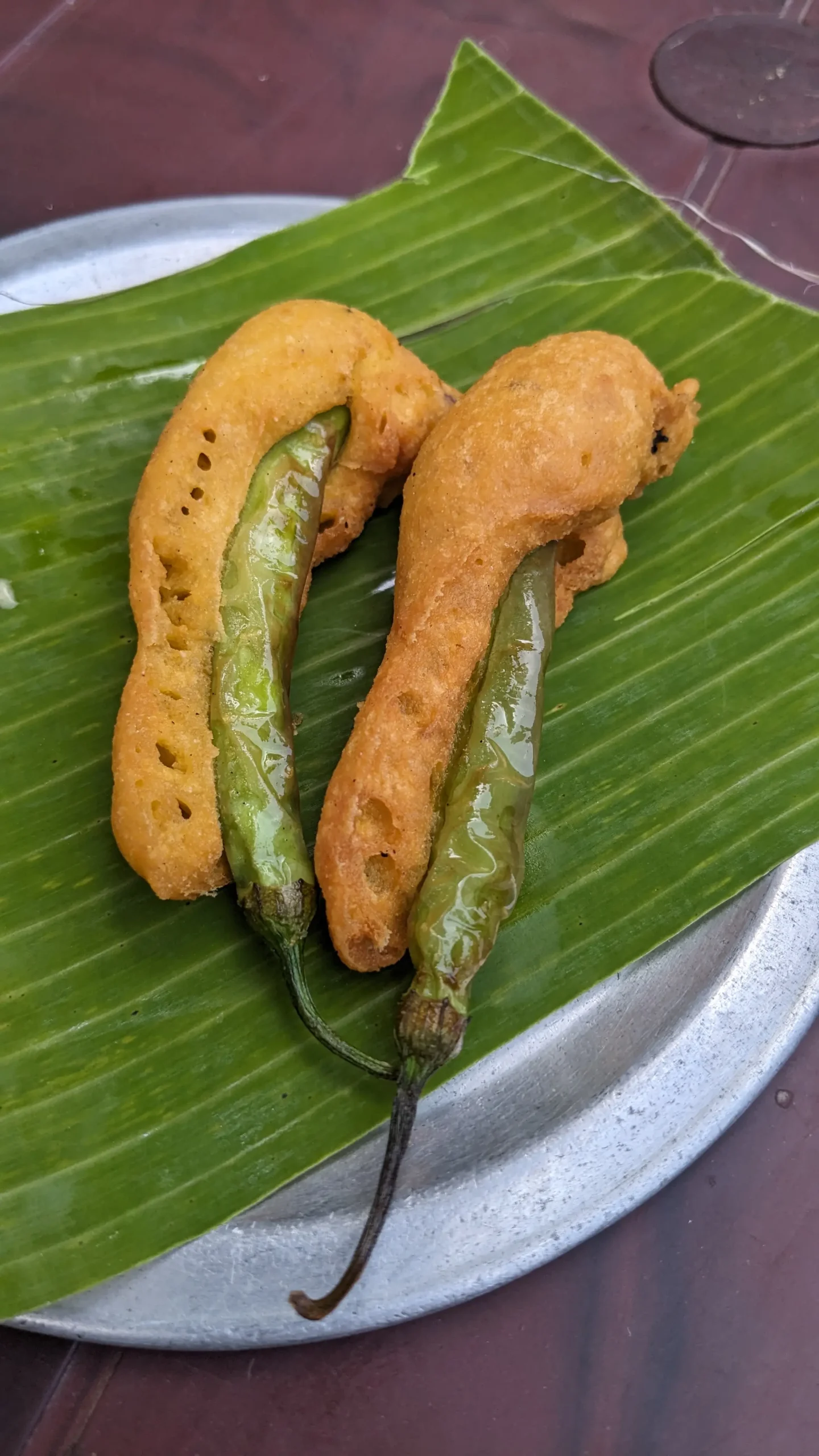

12. Hindi is the Commonly Spoken Language
There are SO many languages spoken in India that there is no way that you can learn them all, but the most commonly spoken is Hindi, and a lot of people also speak English.
13. You Have to Fill Out Paperwork for Everything
There is a lot of paperwork, signatures, passport checks for almost everything you do: checking into your accommodation, taking the train, buying a SIM card, etc. So make sure you allow extra time in your plans to fill out all the forms.
14. Not All Hotels Accept Foreigners
Yep, I know this sounds completely unacceptable, but it’s because of additional licensing and registration requirements, not just blatant racism.
Hotels in locations that are more off the beaten path may not have this all set up correctly. AND even though they may not have the proper licensing, they may not state this on the listing on popular platforms like Booking.com.
We got caught out by this at our accommodation in Hyderabad. We booked weeks in advance through Booking.com and then when we turned up, they told us that we could not stay there because we were foreigners.
We were pretty pissed off that there was nothing mentioned from them before, so anyway there we were sat on the streets of Hyderabad trying to find emergency accommodation.
The moral of the story is to check that there are reviews from foreigners for the accommodation on Booking.com, Agoda or whatever platform you use, not just from Indians. Also if you have any concerns, contact the property and just ask the question.
15. Modest Dress is the Way to Go
With the exception of Goa, you’re going to want to dress modestly. Foreigners get a lot of attention travelling India (see my next point!) and you want to make sure that it’s not the wrong sort of attention.
As a woman, wearing loose clothing that covers shoulders, cleavage and knees is perfect; it’s more respectful of the local culture, and trust me, with the heat this is the best sort of clothing to keep cool anyway.
Also you can buy stunning, colourful, patterned fabrics at the markets, decorated skirts, even full sarees.
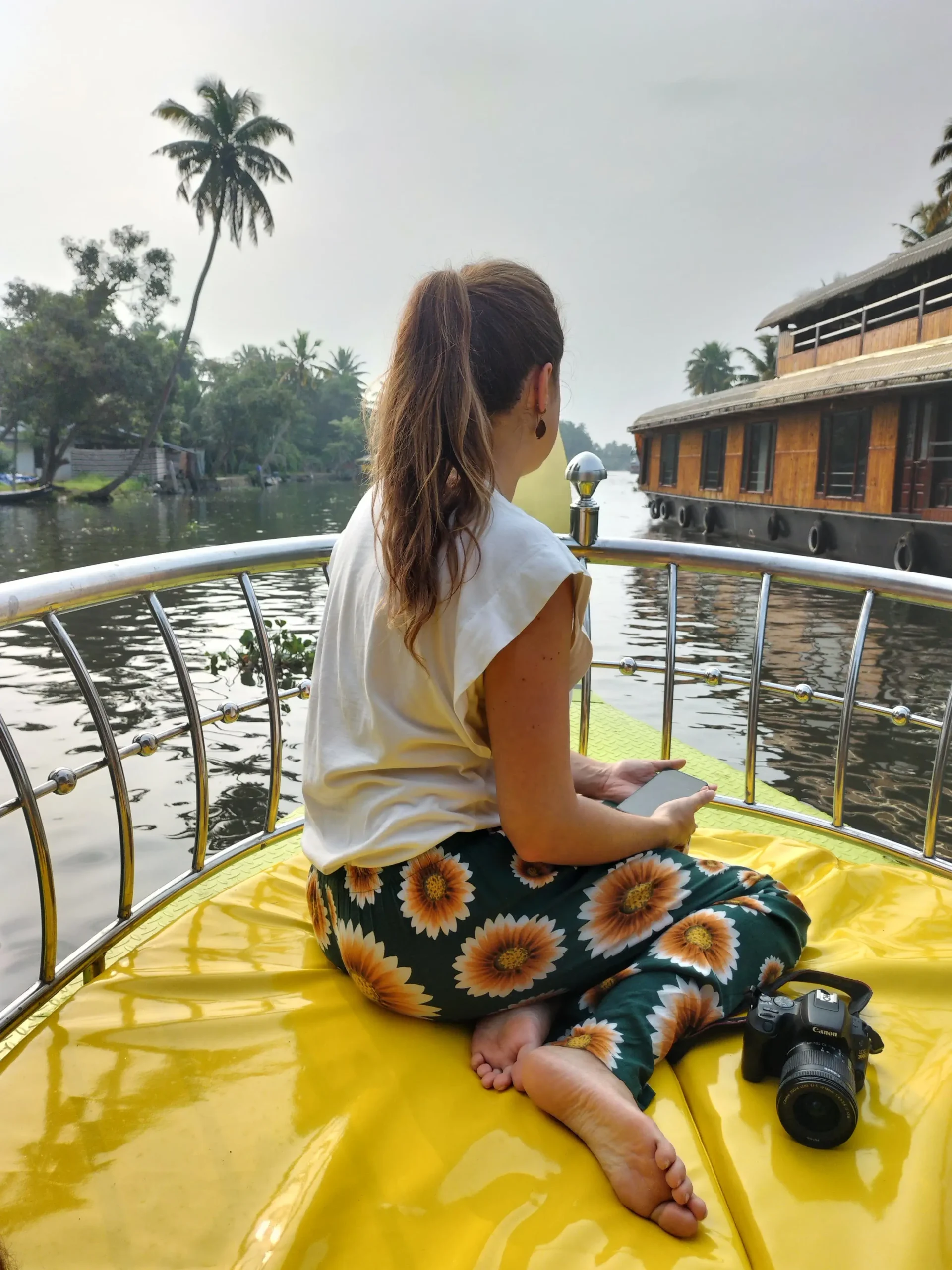

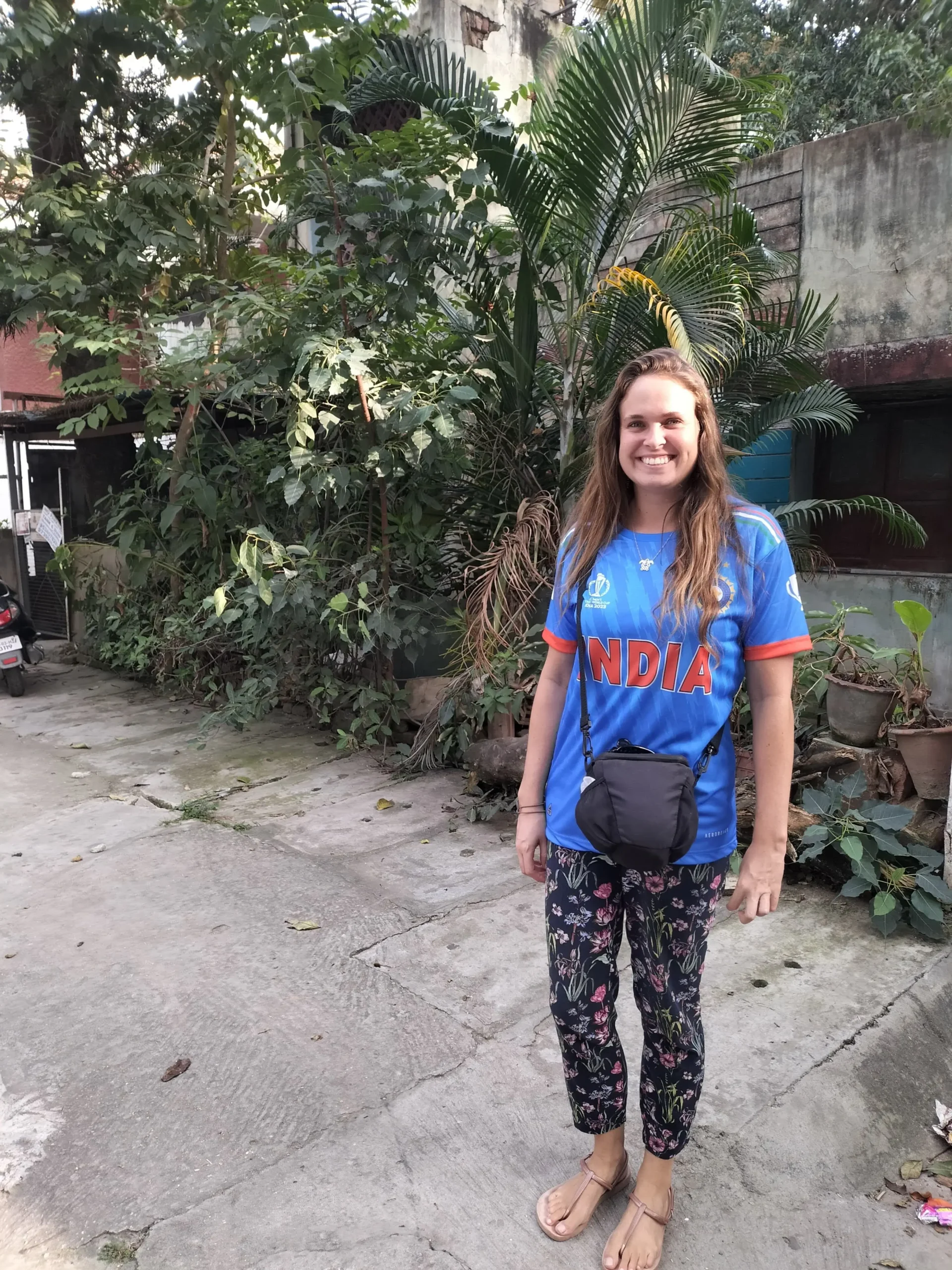

For men, it’s different. You can wear shorts and t-shirts, but keep them on the longer side.
But this situation completely blew our minds, like, we have NEVER experienced anything like this before: when entering a very traditional Hindu temple in the very south of India, Chris was told to remove his t-shirt and enter bare-chested. It’s not all that common nowadays but just an FYI that this may happen.
16. Get Prepared for All the Selfies
And there will be a lot. You’ll end up feeling like a celebrity as a foreigner in India! And I am not exaggerating when I say that we took well over 100 selfies with locals.
Each time someone asked us for a selfie, we made sure that we got one with them too, and sometimes actual queues formed because people wanted photos with us!
Locals would approach us and ask us where we’re from, why we’re there, how we like India etc., and ask for a selfie.
99% of the time, the interaction was wholesome and was out of pure intrigue. I know some tourists may react badly to this sort of thing or think there is some sinister side to it, but honestly, we felt comfortable and welcomed. If you do not feel comfortable, a polite ‘no, thanks’ wouldn’t create offense.
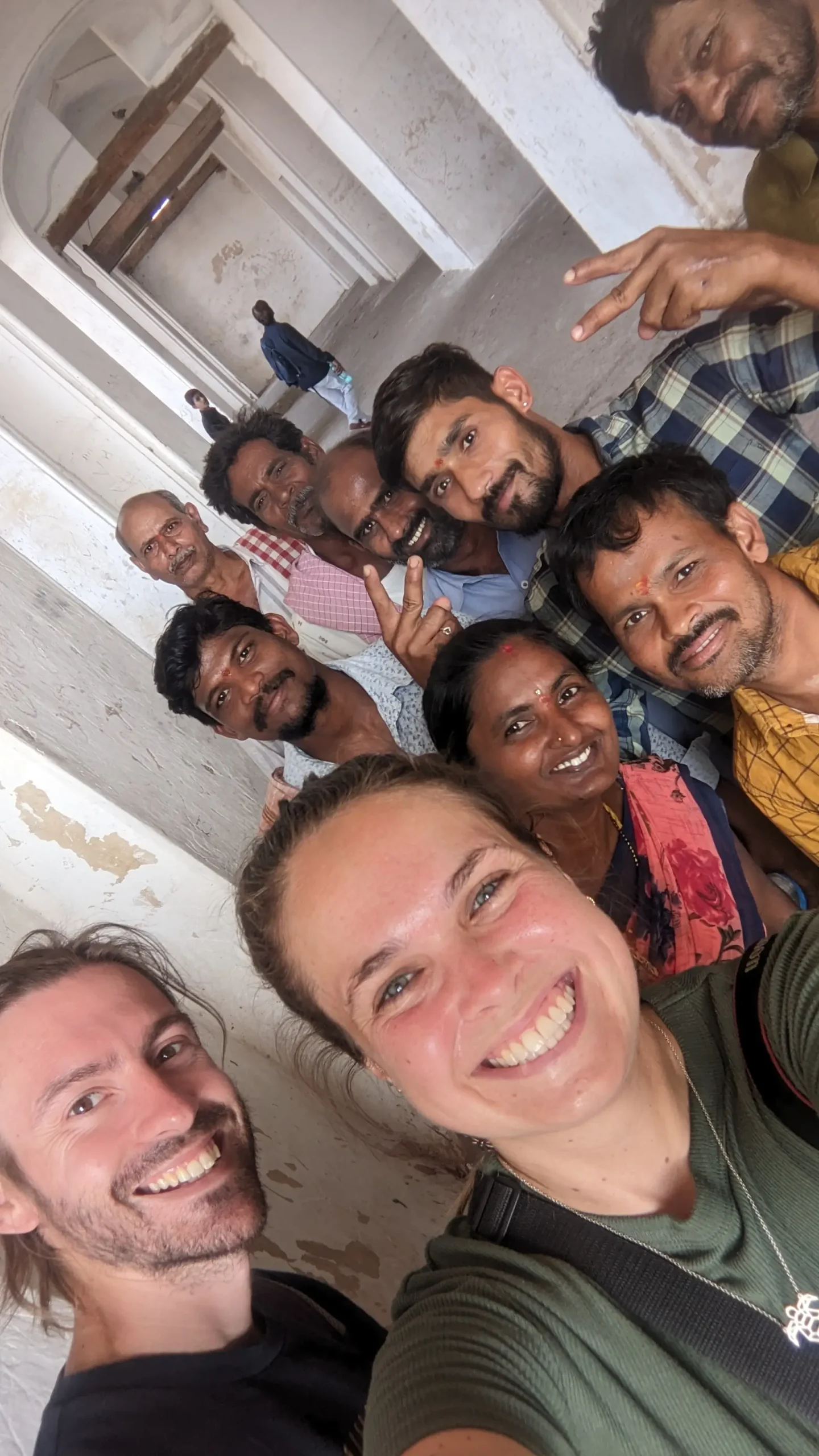

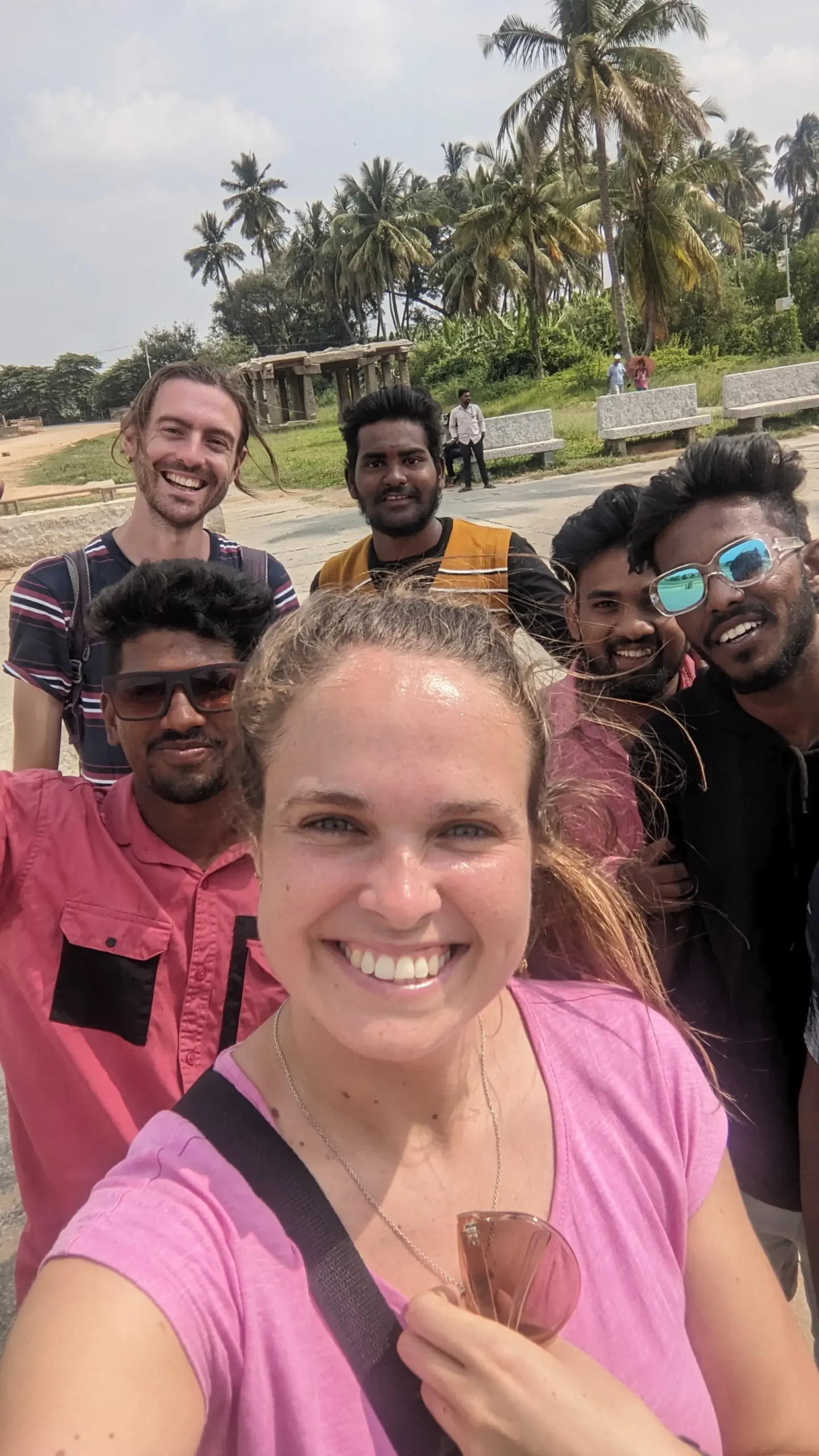

17. Getting a Local Tourist SIM is a Mission
Every single country we go to, we pick up a local SIM at a local phone shop, but India is one of the countries where we would absolutely recommend getting yourself an ESIM in advance instead. Like I mentioned higher up in the post, there is a HUGE amount of paperwork that needs to be filled out to get a SIM card.
Our first stop in India was Chennai, and we turned up to an Airtel shop to get a SIM. The first thing that they asked us for was a local Indian number to send an OTP (one time passcode) to. Well, erm, we’re here to get an Indian number because we don’t have an Indian number, so how do you expect us to give you an Indian number?
Luckily, we had an Indian friend from our last trip to India who said that they could accept the OTP for us! We had to add an Indian address which we obviously don’t have as tourists, so we were told to add our AirBnB address.
We had to have photos taken to add an ID to the number.
They wanted to know Chris’s Dad’s full name. For real – I am not kidding!
Yeah, it was all a bit much. And then after an hour of filling out forms, chasing OTPs from our Indian mate, and taking photos, we were told that it wouldn’t be activated for 24 hours.
It was a lot of faffing, and if you’re only going to India for a couple of weeks, we wholeheartedly recommend getting an ESIM instead to avoid this whole situation.
Savvy Traveller Pro Tips 🇮🇳
After exploring India for three months, these are our favourite booking tools that we couldn’t travel without!
18. Highlights for a Trip to South India
Where do we even start with trip highlights?!
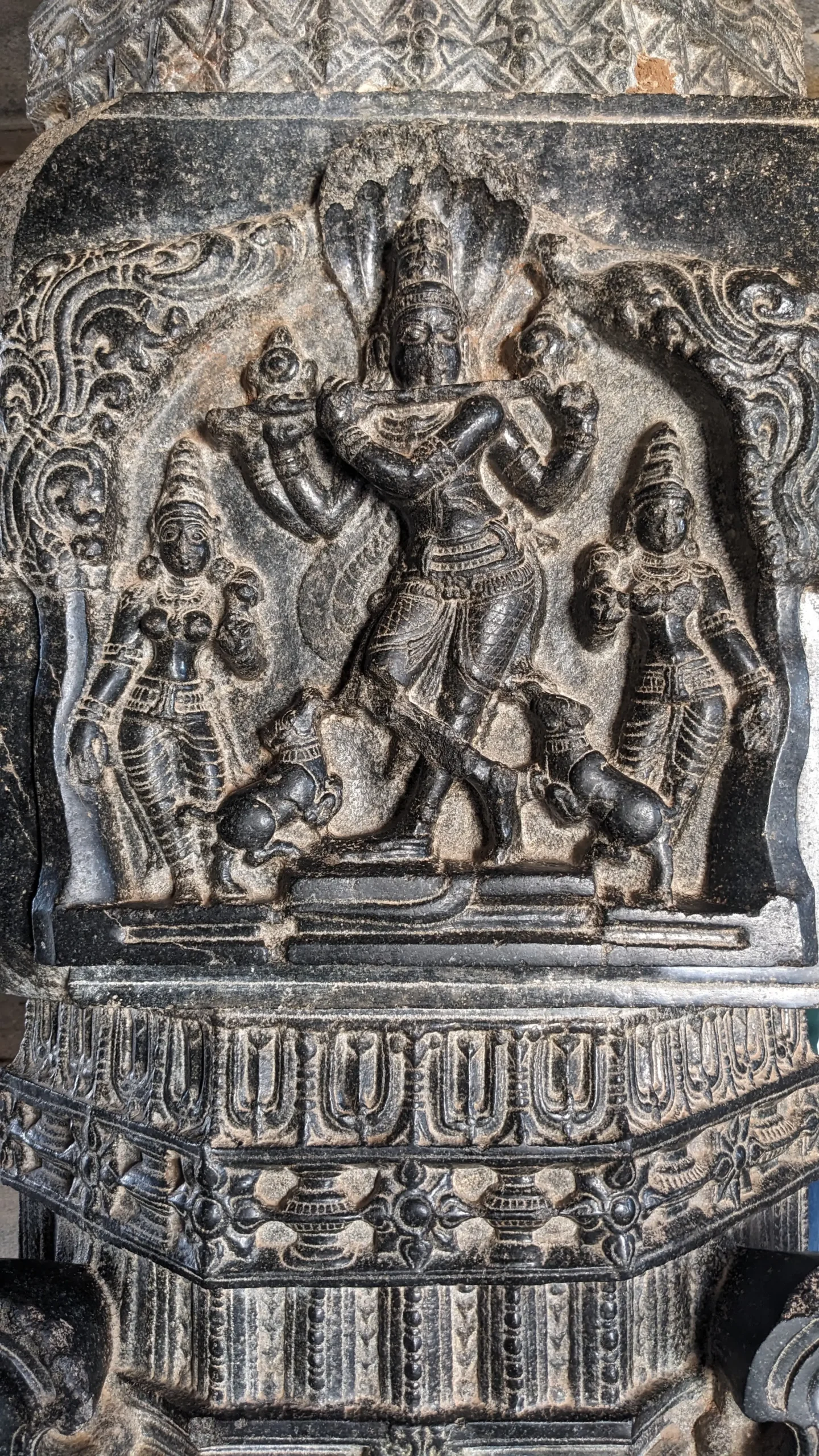

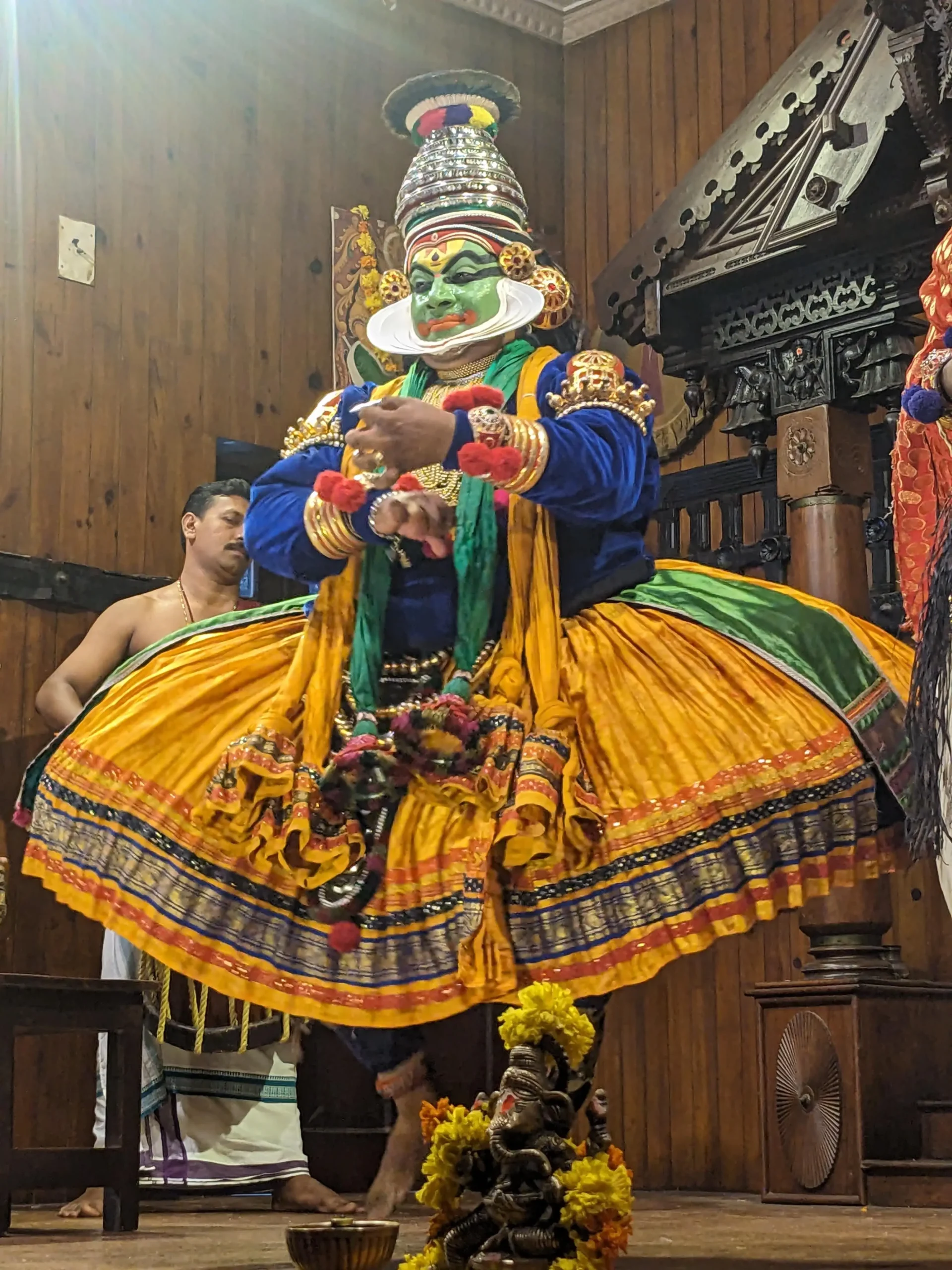

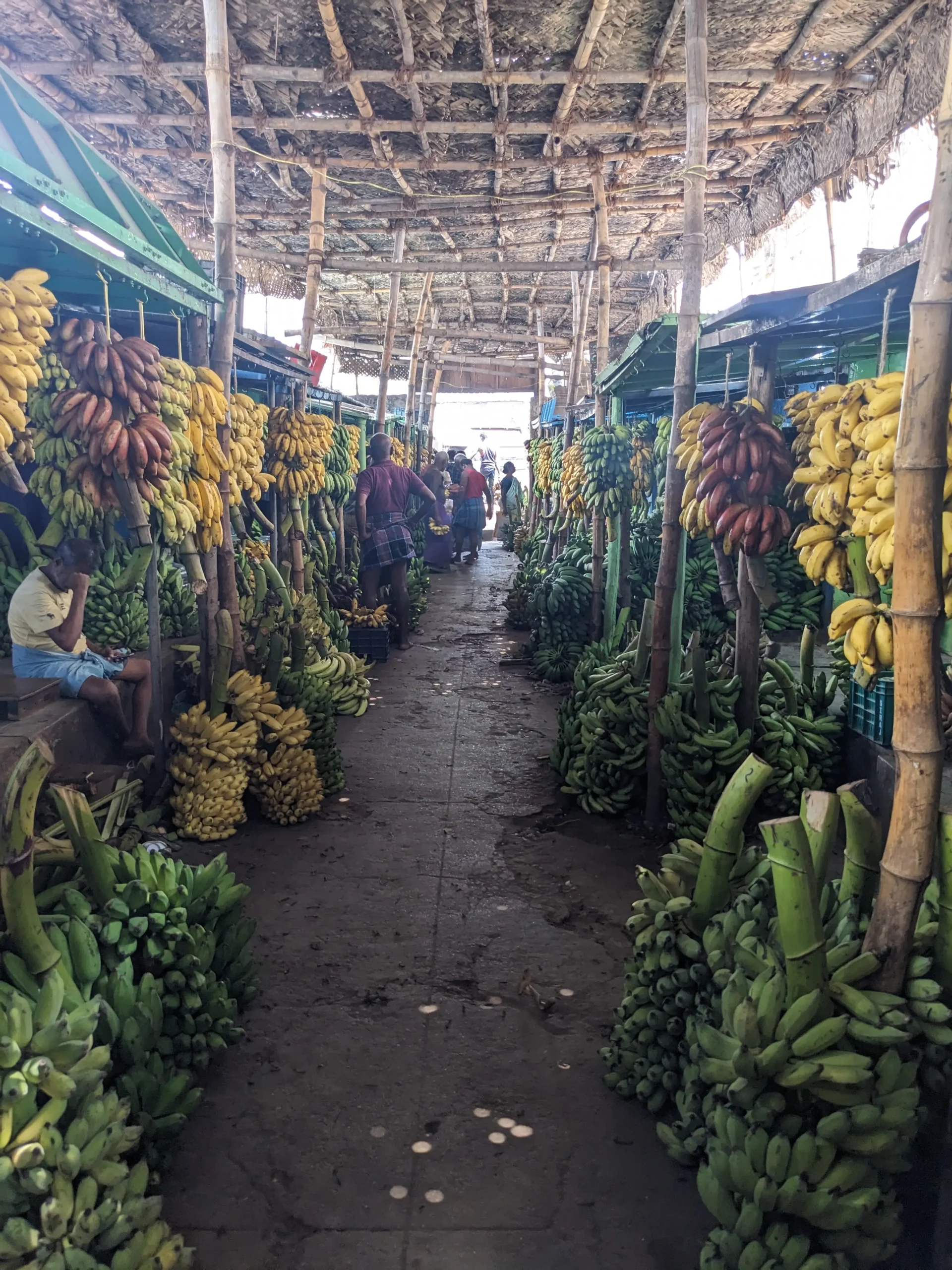

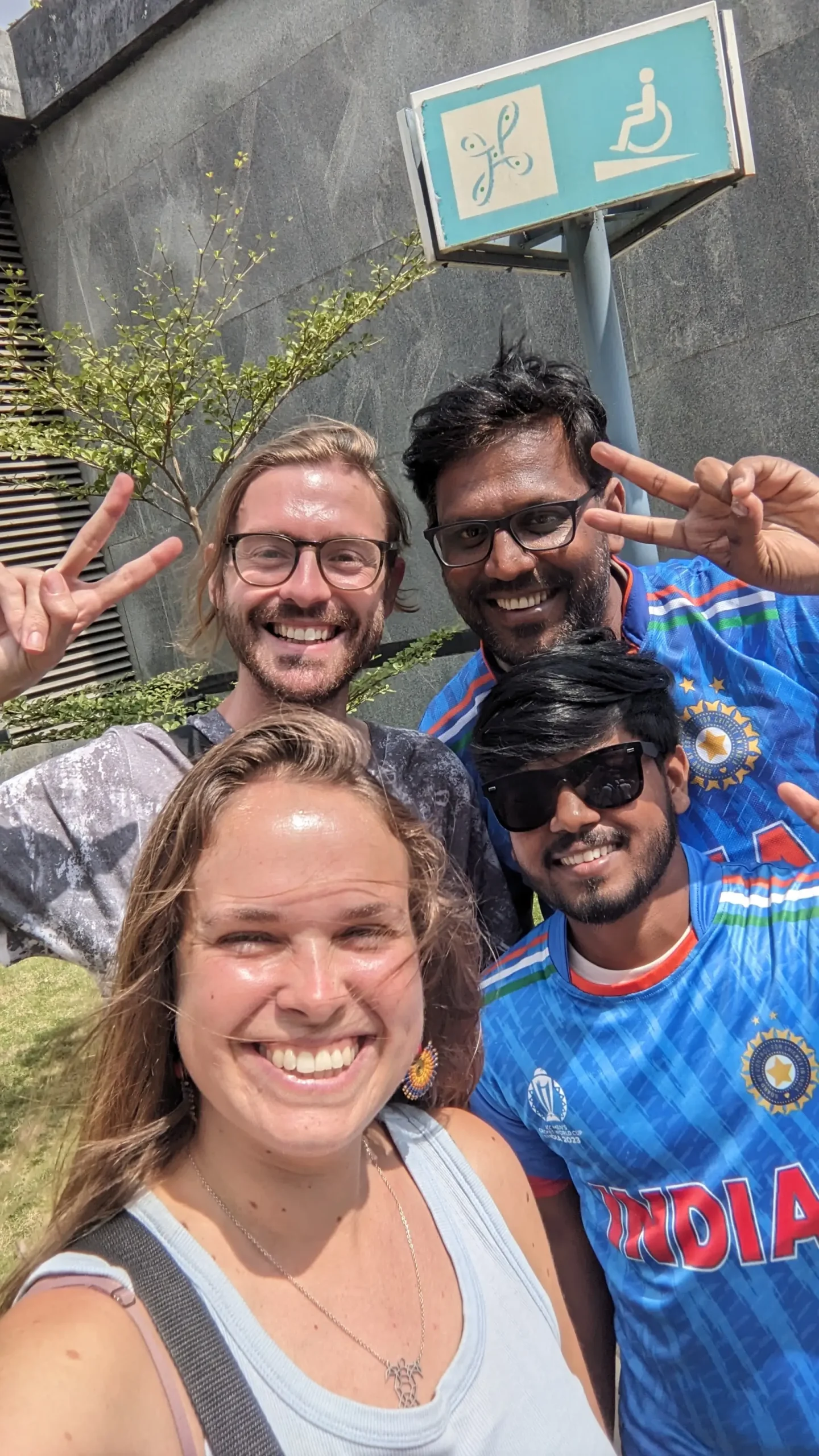

Found this post helpful?
If you would like to support us, buy us a coffee by clicking the button below.
No pressure!
We really do like coffee, though 😉
Like it? Save it!
